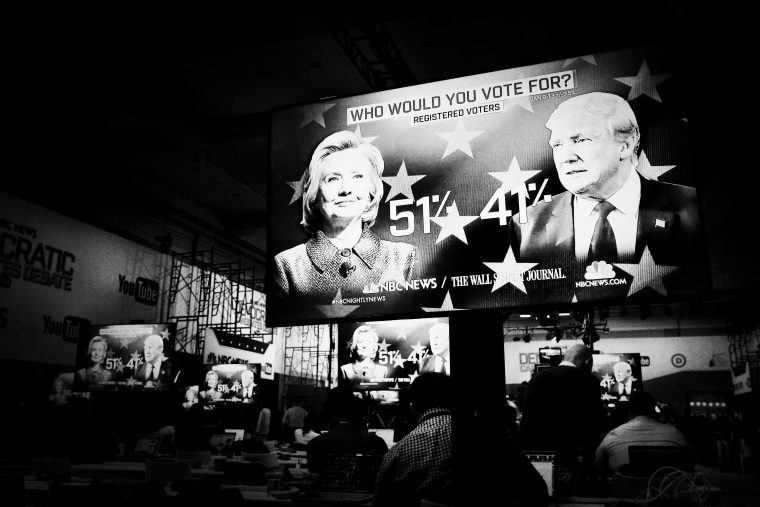Hillary Clinton and Donald Trump have now won two of the first three races in their respective primaries and caucuses, putting the two front-runners in very strong positions heading to March, when more than two dozen states will hold primaries or caucuses.
For Clinton, the Nevada victory is an important turnabout after her 22-point drubbing against Sanders in the New Hampshire primary. She is a heavy favorite to win South Carolina's Feb. 27 primary, which would mean the former secretary of state had won three of the first four contests in the Democratic race.
Clinton's win in Nevada came in part because of her substantial advantage among black voters, who favored her 76 percent to 22 percent, according to exit polls.
In polls, African-Americans in South Carolina are backing her by a similarly enormous margin.
Looking forward, many of the states that will vote in March also have high percentages of black voters, so Clinton is likely to have an advantage in them.
In highlighting Bush's foreign policy failures, Trump broke an unwritten rule of GOP politics — that Republicans don't bash Bush for 9/11 or the Iraq War.
Trump took on the Bush family in a state that both George H.W. Bush and George W. Bush had carried in their successful campaigns for the Republican nomination.
And Trump wasn't just facing off with the Bush dynasty. In the days before the primary, U.S. Sen. Tim Scott, Gov. Nikki Haley, and U.S. Rep. Trey Gowdy, perhaps the three most influential Republicans in South Carolina, campaigned for Florida Sen. Marco Rubio, illustrating the continuing resistance to Trump among GOP elites.
And unlike New Hampshire, which is full of Trump-style Republicans (more moderate on some issues and non-evangelical), the South Carolina electorate is dominated by Christian conservatives who could have rejected Trump for either his ideology or his "New York values," as Texas Sen. Ted Cruz described them earlier in the campaign.
None of that stopped Trump. The real estate mogul was the favorite of South Carolina's moderates, somewhat conservative voters and those without college degrees. He was effectively tied with Cruz among self-described evangelicals and with Rubio among college graduates.
His broad range of support in the Republican electorate suggests major potential for Trump. On Tuesday, March 1, when 12 states will hold primaries or caucuses, it's hard to rule out a Trump victory in any of them. He has the potential to win in Alabama, Massachusetts, and Virginia — three radically different states that all vote on "Super Tuesday."
Trump may not be limited by that paradigm.
To be sure, Clinton and Trump are far from securing the nominations. Trump will eventually have to run against only one or two rivals, instead of the crowded field that was in Iowa, New Hampshire and South Carolina.
With ex-Florida Gov. Jeb Bush opting out of the race after his weak finish in South Carolina, the GOP field is down to just four viable candidates: Cruz, Rubio, Trump and Ohio Gov. John Kasich.
For Clinton, her challenger still remains formidable. Sanders, based on the results in the early states, will still have an advantage in largely-white states with lots of liberal voters. For example, on March 1, the Vermont senator may be the favorite in Massachusetts, Minnesota and Vermont.
"I believe on Super Tuesday we have an excellent chance to win many of those states," Sanders said on Saturday night.
And there is no guarantee that black voters will stick with Clinton. There is already some evidence in polling that blacks under 45 who for now are still favoring Clinton, are more favorably inclined to Sanders than older blacks.
This article originally appeared on NBCNews.com.
